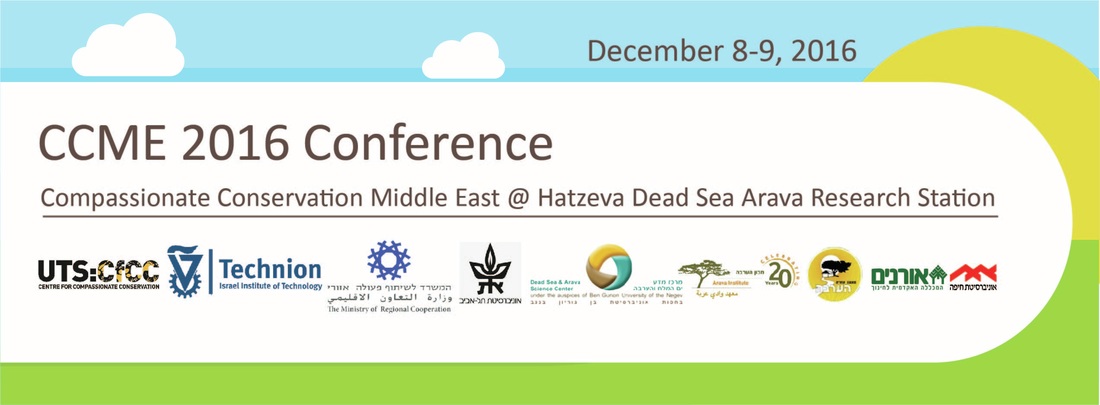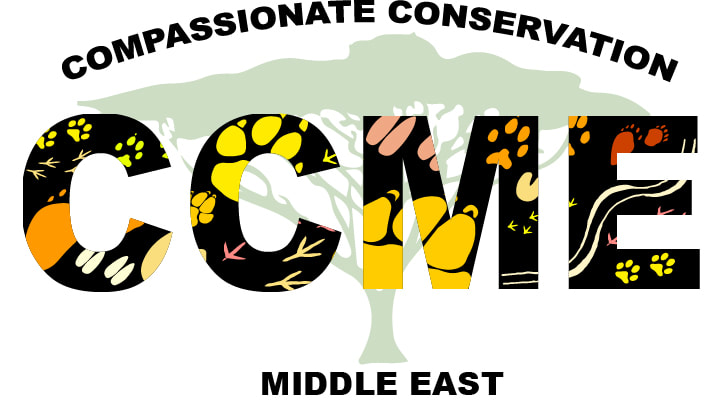BackgroundIn conservation practice the welfare of species typically takes precedence over the welfare of individuals. A common consequence is that individuals are killed for the sake of preserving populations. This puts two predominant social values against one another, nature preservation and animal protection. Similarly in human-wildlife conflict situations anthropogenic concerns usually take precedence over the protection of wildlife.
‘Compassionate conservation’ is an emerging discipline that builds the welfare of individual wildlife into conservation practice to improve outcomes for individuals, species, ecosystems and shared space between humans and wildlife. With a commitment to improving ethical standards in conservation and wildlife management research and practice, compassionate conservation provides new solutions to previously intractable conservation challenges. This approach breaks new ground by transcending the ongoing dilemma of choosing between animal protection and conservation by looking for synergies between these two approaches to improve conservation and wildlife management outcomes. The field of compassionate conservation is being developed at the Centre for Compassionate Conservation, University of Technology Australia, and research is growing in numerous international publications, a seminal book and a biannual international conference. Compassionate conservation is increasingly being applied and taught at a growing number of academic institutions. Recently, the Compassionate Conservation Middle East group was formed in Israel. The group’s aim is to promote the research and application of compassionate conservation regionally. Regional Importance
As of 2015, thirteen percent of the population in Israel is vegetarian (one of the highest in the world). This movement has increased critique of all forms of animal exploitation such as animal experimentation, use of animals in entertainment such as circuses, industrialized farming of animals and certain practices in conservation management. From a practical perspective, conservation efforts are likely to be increasingly hampered by requests from the public to not harm target management species. For example, killing of roaming dogs in Israel resulted in a public outcry and a Ministry of Environment decree that they cannot be killed. By incorporating animal protection values (including biodiversity and agricultural values), and thereby decreasing public intervention, conservation programs can achieve longer term success.
Because nature has no borders conservation issues faced in Israel also affect Palestinians, Jordanians, Egyptians and the region. Compassionate Conservation Middle East is a research group that seeks to create regional collaborations to address conservation management. To achieve this we need to share knowledge and work together on issues that are either common or particular to certain areas. An emerging local project is the study of the ecological role of wolves as top predators in the middle east. The project will be conducted on the Israeli and Jordanian sides of the Arava valley, and will be compared to ground breaking research on North American wolves and Australian dingoes. Another aspect of the project is that wolves are managed differently in Israel and Jordan and therefore are likely to differ in their respective impacts (including biodiversity values agriculture). A study of the wolve’s management dichotomy may inform local nature management and agricultural practices. The International Wolf Project is led by scientists from the UTS Centre for Compassionate Conservation, Australia, and members of CCME. Our research can engage local residents and highlight the importance of the Arava region in professional circles. The research will be based at the Dead Sea and Arava Science Centre and bring international research collaborators and visitors. A biennial symposium in the Arava will draw local and international participants and highlight the challenges this region faces. We also hope to engage young adults of the region interested in volunteering and learning. |
The Conference
CCME will hold its first regional conference on December 8-10, 2016 in the Hatzeva Dead Sea Arava Research Station. The conference goal will be to present and discuss compassionate conservation research in the region. It will be structured to include presentations from invited and selected academics, and a number of discussion forums. There will also be a field trip to highlight nature and sustainable living in the Arava.
Invited guests will include leading academics and students from Israel, Palestinian Territories, Jordan and hopefully Egypt, as well as Turkey, Greece, and the UTS Centre for Compassionate Conservation in Australia. We can access a well-established regional network of academics through the Arava Institute of Environmental Studies and the Dead Sea and Arava Research Centre. The regional guests will provide lectures and engage in dialogue on how to advance regional and international collaboration in compassionate conservation research and management. Abstract Submission
For those who would like to present, abstracts should be up to 250 words and submitted by 31 November.
ScheduleThursday
6:45 pm Dinner 7:45 pm Welcome 8:00 pm Keynote Speech - David Salz Friday 8:00 am Breakfast 9:00 am Presentations 5:00 pm Discussion 6:30 pm Finish Saturday (activities by invitation only) 6:30 am Arabian Babbler tour 8:00 am Breakfast 9:30 am Discussion 11:00 am Arava ecological tour Note - those who would like to stay Saturday but without invitation can do so at their own expense Attendance optionsOption 1: Thursday - Friday
Thu - Welcome, keynote lecture and dinner Fri - Breakfast, presentations, lunch, presentations, summation Option 2: Friday Day Presentations, lunch, presentations, summation Option 3: Thursday - Saturday Thu - Welcome, keynote lecture and dinner Fri - Breakfast, presentations, lunch, presentations, summation, dinner Sat - Leisure day including breakfast and lunch Accommodation
Accommodation at the Hatzeva Field school is offered and covered in the prices below. If you would like alternative accommodation you can take a look at Moshav Hatzeva or Moshav Idan which are close to the conference location. Follow the below link and scroll down to Hazeva and Idan
http://www.zimmeril.com/sSearch_EN.asp?Stype=1&Sreg=45&Scity=&Ssubtype= Details/Costs1. Options 1 & 2 are at no cost. Includes Thur night dinner and accommodation at Hatzeva Field School in a double room, and Friday breakfast/lunch. 2. Option 3 - staying Fri night. Includes Option 1 and 2 (free). At cost price of Fri night dinner - 75nis / accommodation 329nis, and Sat breakfast/lunch 46nis, Total of 450nis Registration |


